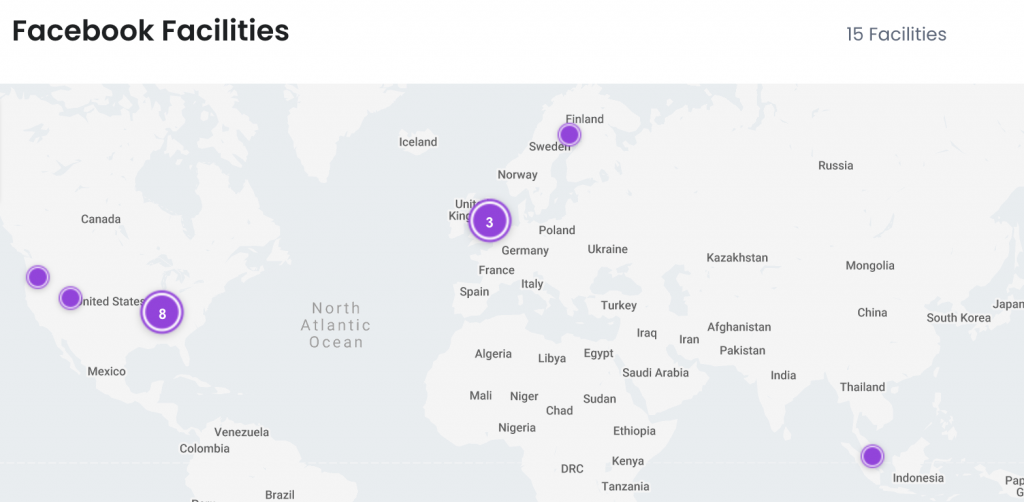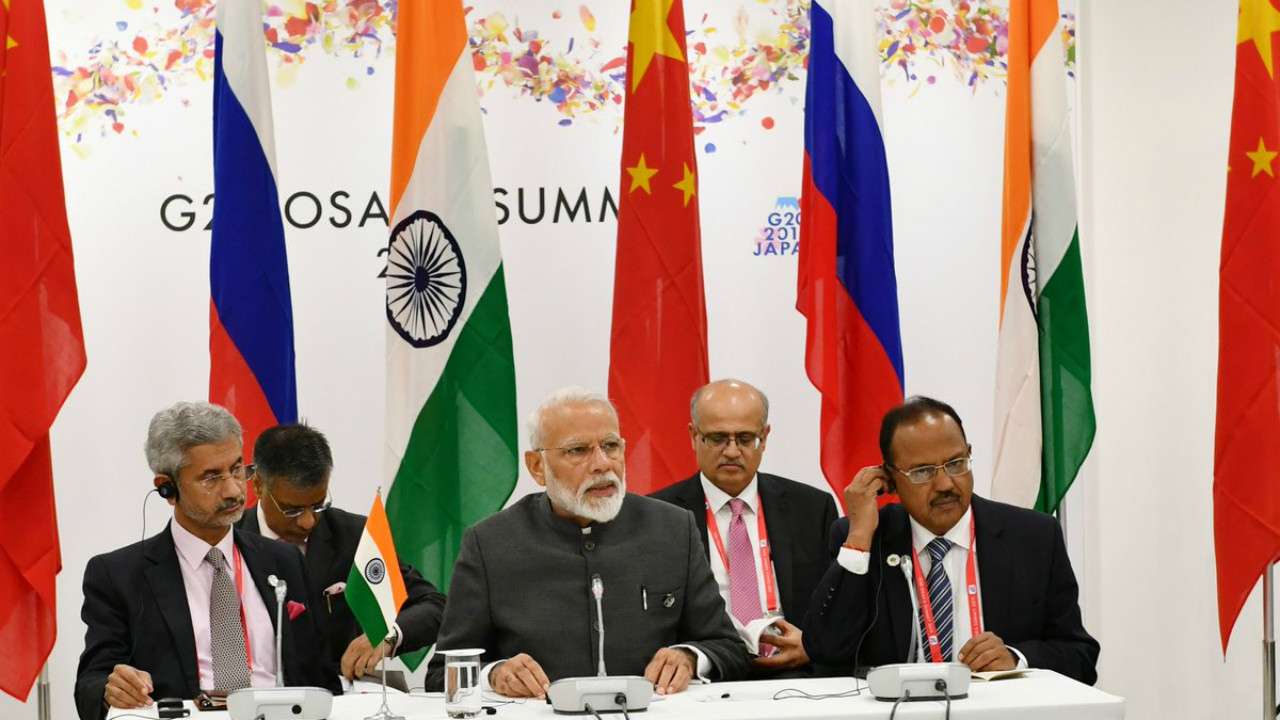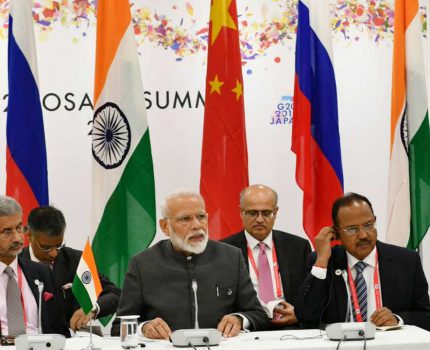Reading time: 3 minutes, 53 seconds.
In June 2019, various developing countries refused to sign the Osaka Track at the G20 summit in Japan. The Osaka Track aims to promote global rules on data flows and remove prohibitions on data localization. Data localization is essential for this issue, as it processes and stores citizens’ data within the borders of the country.
Some countries such as India, South Africa, and Indonesia opposed the plurilateral negotiations on digital trade at the G20 Summit because these countries had no freedom to state their own interests about data collection. As plurilateral treaties might possibly deny the policy space of developing countries including data governance, enhanced data localization might undermine such treaties.
Data is a new form of wealth
– Foreign Secretary Vijac Gokhale
Regarding the Osaka Track, India took data localization procedures to abstain from alleged digital colonialism. An example of digital colonization may be the locations of Facebooks data centers. Despite the fact that India is at the top of the chart when analyzing which country has the most Facebook users, Facebook has only 1 data center in Asia. The other data centers of Facebook are located in North America (10) and Europe (4). As the location of data centers are inconsistent with the sources of data, the concept of “digital colonialism” stands out in this context.

The ABCs of digital colonialism
During the colonial period, colonizers took control over other territories and people with the aim of economic dominance. Corporations such as East India Company played an important role in the process of colonialism. The West took ownership of critical infrastructure in their quest for profit, while the territories of native peoples were exploited to extract raw materials.Similar to the colonial period, digital colonialism in today’s world also has a quest for profit. The questions of who is accountable, and who has control over data become essential to understanding the power of authority. Despite the fact that the colonial period was about exploitation of natural resources and the population as labor, digital colonialism refers to modern-day “Scramble for Africa” where new technologies are tools to extract user data for profit. Digital data, in this case, is commoditized. For instance, Facebook was forced to cancel its “Free Basics” programme in India (Wazir, 2016). This programme aimed to introduce free basic internet services to the poor and show the potential of the Internet. However, it has been argued that this service augmented Facebook’s monopoly power and its surveillance over other organizations and powers.
Free flow of data: A tool for digital colonialism?
Free flow of data has major economic impact and its effect on innovation is explicit. It helps to share ideas and information, distribute knowledge, and collaborate with one another regardless of national borders. The free flow of data across borders allows companies and public administrations to store and process data wherever they are. Although free flow of data allows multiple benefits for people and organizations across the world, the actions that governments take may be for their own benefit with the cost of data privacy. For example, data can be used for marketization purposes by the organizations but also for surveillance purposes by the governments. The push for free flow of data in cross-border treaties could be an attempt by digital giants to preserve their businesses from other competitors in emerging developing countries such as India (Das, 2020). Therefore, free flow of data can be used as a tool for digital colonialism.
What about data localization?
Data flow restrictions can help governments to:
1. Protect or improve citizens’ personal privacy
2. Ensure rapid access to data by law enforcement officials
3. Protect or ensure national security
4. Improve economic growth or economic competitiveness
5. Level the regulatory playing field
– Joshua P. Meltzer & Peter Lovelock, 2018
Data localization is similar, yet different from the concept data sovereignty. Data sovereignty means that all data should be subjected to the laws of the nation that data is collected. On the other hand, data localization takes this idea forward since it requires that the initial storage should first occur within the national borders. If the data is asked to be transferred internationally, it should be subjected to data protection laws such as informing the user how the information will be used. This can be useful for maintaining control and protecting data privacy.
While data localization helps to keep processed and stored data inside national borders, it can also create new challenges such as attempting to find a free data flow method between countries based on various approaches to privacy. Such challenges can pave the way for having increased economic and trade costs.
Do you think that countries should have digital sovereignty or should they follow data localization procedures to restrict data flows?
This post is written by Aylin Karaarslan. Find out more about the authors of this blog.
Related Readings
- ‘Digital colonialism’: Why some countries want to take control of their people’s data. [Mail & Guardian]
- Digital Colonialism. [Freely Magazine]
References
Statista. (2020). Leading countries based on Facebook audience size as of July 2020 [Internet,
Social Media & User-Generated Content]. Retrieved from
https://www.statista.com/statistics/268136/top-15-countries-based-on-number-of-facebook-users/?hsCtaTracking=bf2b8e61-251a-4c17-a479-b8edee524af5%7C16a446de-1244-4997-8ffc-e84ef47cc2ad&ref_src=twsrc%5Etfw&hl=en_GB&subject=Do+Not+Sell+My+Personal+Information&id=com.leadforensics.mobile&autoPlay=true&__hstc=259582869.c4a577029c49e44b73bd3bee6fa38565.1591056000150.1591056000151.1591056000152.1&__hssc=259582869.1.1591056000153&__hsfp=1235175601
Datacenters.com (2020). Facebook Facilities [Providers, Facebook]. Retrieved from https://www.datacenters.com/providers/facebook
Meltzer, J. P. & Lovelock, P. (2018). Regulating for a digital economy: Understanding the importance of cross-border data flows in Asia. Working Paper 113, March 2018. Global Economy and Development at Brookings. Retrieved from https://www.brookings.edu/research/regulating-for-a-digital-economy-understanding-the-importance-of-cross-border-data-flows-in-asia/
Roy, S. (June 29, 2019). G-20 Osaka summit: India refuses to sign declaration on free flow of data across borders. The Indian Express. Retrieved from https://indianexpress.com/article/india/g-20-osaka-summit-narendra-mod-india-declaration-on-free-flow-of-data-across-borders-shinzo-abe-5805846/
Wazir, B. (February 9, 2016). India’s relationship with Facebook and Free Basics. Aljazeera. Retrieved from https://www.aljazeera.com/features/2016/2/9/indias-relationship-with-facebook-and-free-basics Das, A. (January 12, 2020). India faces threat of digital colonisation. Business Line. Retrieved from https://www.thehindubusinessline.com/opinion/india-faces-threat-of-digital-colonisation/article30551143.ece

